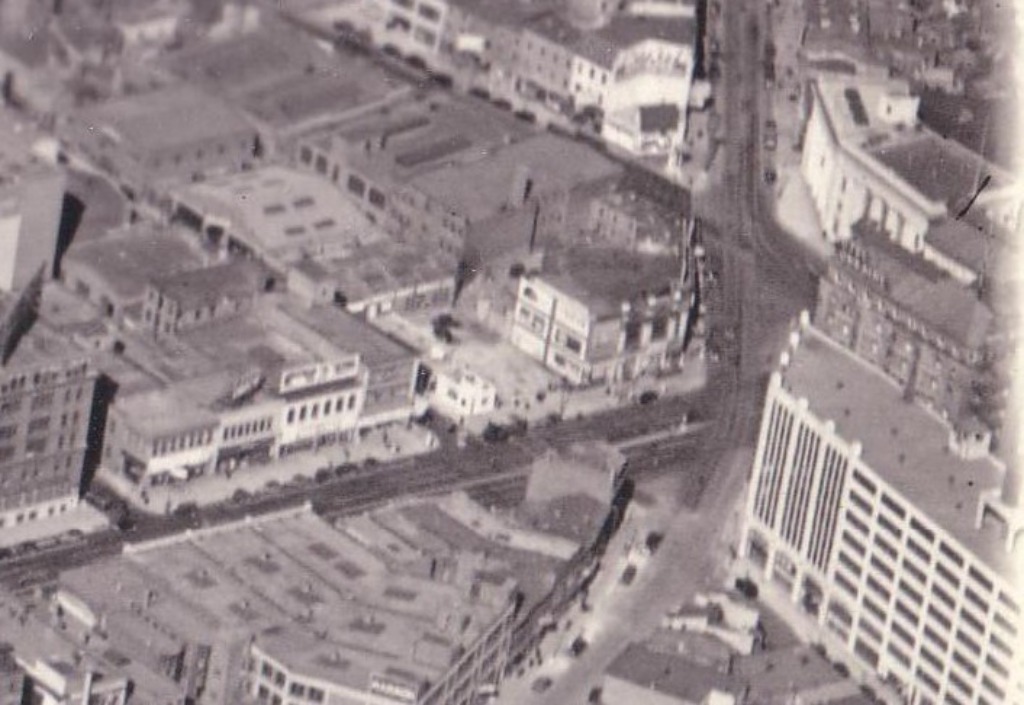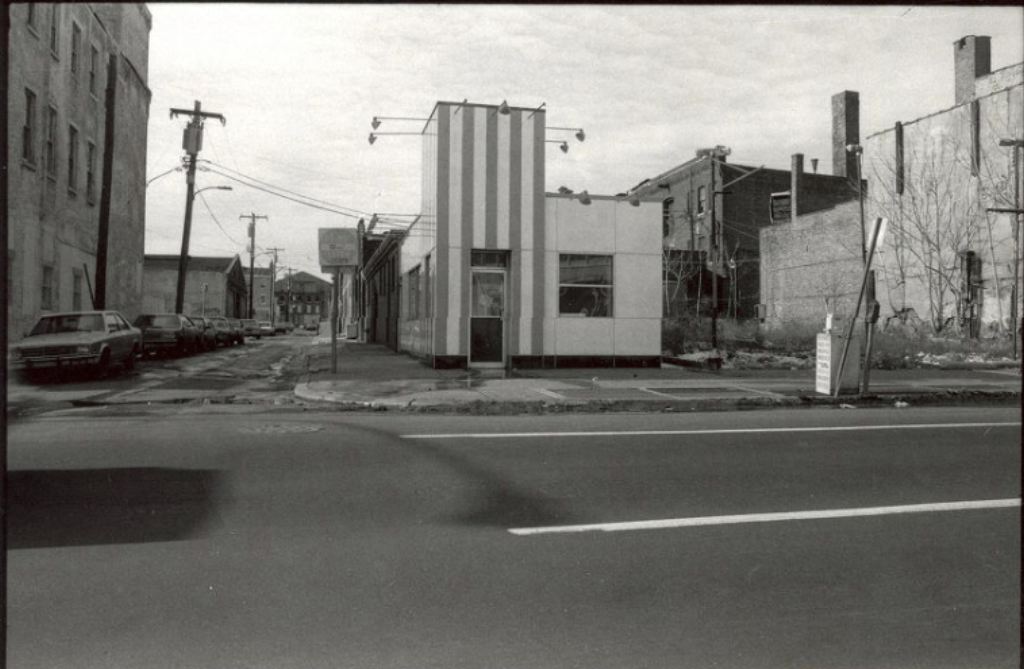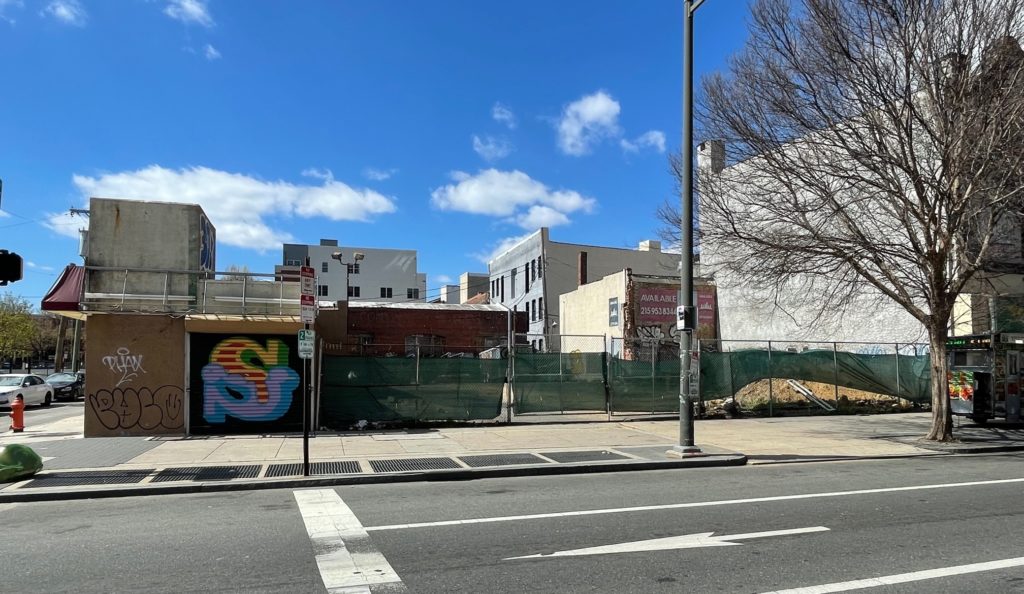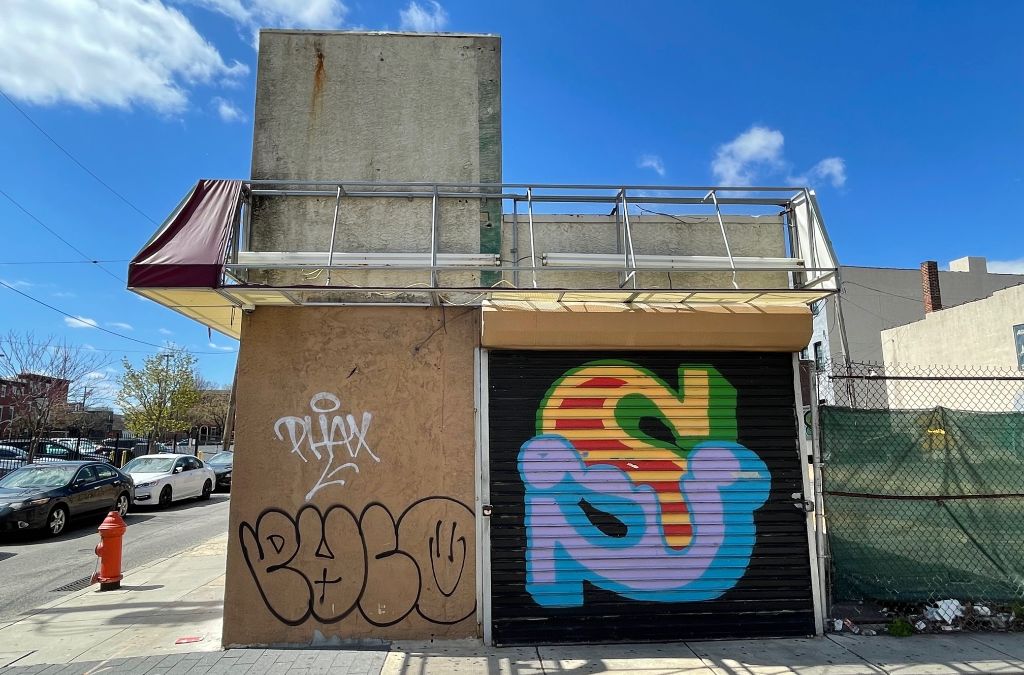Near the center of a modern metropolitan city, it’s always a shame to see an empty lot covered in asphalt. That there are fewer such lots than there used to be even 10 years ago just makes the ones that remain all the more prominent. The origins of these lots are often stories told about periods of disinvestment in the city in the mid 20th century, but sometimes a stubborn asphalt lot survives the decades, even as its surroundings change again and again and again. 678 N. Broad St. is one such lot– having turned 95 years old this last February.
This property started its development life in the early-to-mid 19th century as a series of flour mills and wool manufacturing concerns. The more interesting use on the lot came along at the end of the 19th century, when former sea captain and serial entrepreneur Lewis Gandy developed a six-story storage warehouse on the site.
At the time, self-storage had become popular among the wealthy, especially the nouveau-riche, which were the primary inhabitants of all the opulent mansions further up North Broad Street in those days. While some banks had their own fire-proof storage rooms for wealthy people to store valuable furniture (the remains of the American Trust Company building at 682 North Broad was one such bank), dedicated storage companies were a relatively new concept. These companies held the furnishings of affluent people while they vacationed in the summer. Before the days of air conditioning, leaving your home during the warmer months meant you would return to a house covered in insects and vermin. Ew.
The Gandy Storage Warehouse that stood at 678 North Broad was among the earliest in the city to provide this service. They would send a series of wagons to a customer’s home, carefully wrap their furniture, draperies, rugs, and musical instruments and cart them back for storage at their 6-story facility. The business was operated by Lewis Gandy’s son, Alfred Gandy (Lewis died one year after the building was built). Alfred was the much less accomplished of Lewis Gandy’s sons – his younger brother George has a bridge, neighborhood, beach, several streets, and unincorporated community named after him in Florida.

By the 1920s, the city had many more dedicated storage buildings, some with elaborately decorated facades to match the tastes of their clientele. While the Gandy Storage House had much more competition, all of its advertisements claimed it was nearly full.
During a harsh blizzard in the early morning hours of February 20th, 1927, a patrolling police officer noticed smoke coming from the offices of the Peerless Carpet Company on the first floor of the Gandy Storage House. The fire spread rapidly and consumed the building. Hundreds of people came out to witness the four-alarm blaze while firefighters climbed the building in the high winds and snow to insert hoses in the windows. At 3 AM that morning, the walls of the building came crashing down, injuring three firefighters and damaging adjacent buildings. So much water was sprayed into and around the building that the not-yet-completed subway under Broad Street was completely flooded.
At this point in time, the business was no longer operated by the Gandy’s, but by a James W. Brooks, who lamented to the press that the building was entirely full.
The Gandy’s retained ownership of the property thereafter and leased it to Anders & Jervis Corporation, who paved over the lot and sold cars there. After all, North Broad Street had become Automobile Row and auto-related businesses dominated the corridor. The damaged homes and buildings next door at the corner of Broad and Melon were also removed, replaced by the White Tower Restaurant that would operate there until the 70s and whose building still stands there today (a whole other story to tell).

The property held car dealerships for the next several decades. Ownership of the lot transferred to Gandy family member Samuel Gorson in 1947, who owned the White Tower property next door. Upon his death seven years later, ownership transferred to his son Cyrus Gorson, who sold both properties to the Equitable Credit Discount Company, a lender that specialized in auto loans. The two properties remain linked in ownership to this day.
Once White Tower closed in the 1970s, it appears that the old Gandy Storage property stayed fallow for at least a decade.

The Equitable Credit Discount Company sold the properties in 1985. The lot served as accessory parking for the uses in the old White Tower building and later went back to being a used car dealership in the late 1990s.
Early in the 21st century, large For Sale signs with the owner’s phone number started appearing on the site of the Gandy Storage House. This made a lot of sense considering that redevelopment of nearby buildings as North Broad Street and adjacent Francisville started on a development upswing. The property would get occasionally get marketed but didn’t appear on the Multiple Listing Service until October 2020 with a rendering showing how a new owner could take advantage of the site’s CMX-4 zoning.


On August, 20, 2021, the old Gandy lot was sold along with the old White Tower restaurant and the remains of the Penn Motor Car Company building at 680 North Broad for $3.1M. We’re hoping this means that the 95-year legacy of this asphalt will soon be coming to a close.
-Dennis Carlisle
UPDATE (4/5): If you want to know more about the history of properties on this part of North Broad Street, join OCF’s Dennis Carlisle for his new tour, North Broad Remembered, on its new date, Thursday, April 21st at 5:30 PM. Sign up at this link.
